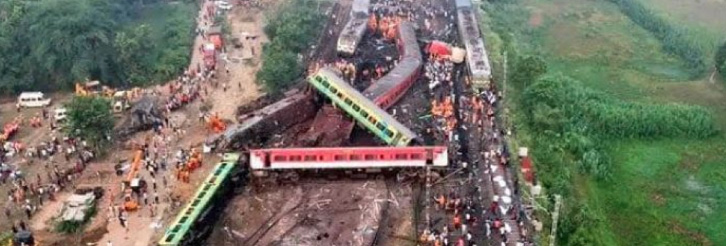Bhubaneswar: Four months after the triple train accident that claimed 297 lives in Odisha’s Balasore district, authorities at the Bhubaneswar Municipal Corporation (BMC) have cremated 28 unidentified bodies.
The process for the cremation of the unclaimed bodies was started 10 October evening and was completed this morning, informed BMC Mayor Sulochana Das.
She said women volunteers actively participated in the funeral. “Women volunteers notwithstanding any stigma came forward and lit funeral pyres of the bodies. They even do not know the religion of the deceased persons or whether the bodies were males or females,” the Mayor said.
The bodies were kept in the AIIMS Bhubaneswar since the accident occurred in June. The BMC officials cremated the bodies at Bharatpur crematory, in the outskirts of Bhubaneswar.
Madhusmita Prusty (37), Smita Mohanty (53) and Swagatika Rao (34) who cremated the first three bodies, said: “We came forward on our own to do this sacred ritual for the unidentified bodies. They might be our relation in some previous lives”.
Rao said that the bodies were beyond recognition and one cannot identify whether they were males or females. “Above all, they were human beings and their last rites are done with dignity,” she said.
An NGO was engaged to conduct the ‘Mukhagni’ (lighting the funeral pyre) and collect the bone pieces for immersion in water bodies.
The unidentified bodies were kept in AIIMS Bhubaneswar in a container after the triple train accident on June 2 at Baganaga Bazaar in Balasore district. The AIIMS Bhubaneswar authorities handed over the bodies to BMC in the presence of officials of the CBI, which is probing the train tragedy.
“All the unclaimed bodies have been cremated according to the State Government, Central Government and NHRC guidelines,” a senior BMC official said, adding that the entire process of handing over bodies to the funeral has been videographed.
The official said that the DNA of the bodies was preserved for investigation as well as for legal issues if any.
“Though nobody came to claim the 28 bodies in the four months, anyone may make any claim later. Therefore, keeping in view the legal issues, we have preserved the DNA,” said Prof Pravas Tripathy, head of the Anatomy department of AIIMS Bhubaneswar.
The AIIMS Bhubaneswar had received 162 bodies and 81 of them were handed over to the family members of the deceased in the first phase. Later, another 53 bodies were given to the family members following DNA tests but the remains of 28 others have been unclaimed, the official said.
The bodies were kept in at least five deep freezer containers procured from the Paradip Port Trust.


